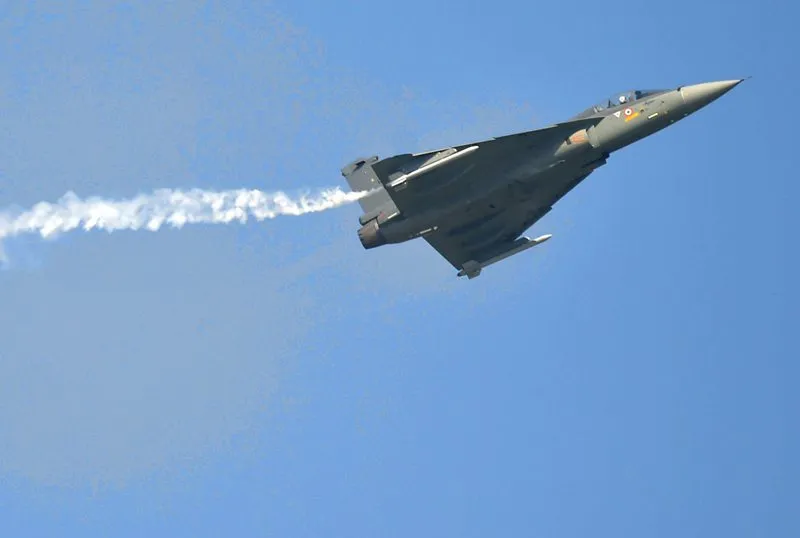
The almost daily cross-border firing at the Line of Control (LoC) and frequent terror attacks in Jammu and Kashmir are clear indicators that India’s current deterrence strategy against Pakistan has failed. The reasons are not that hard to find. New Delhi’s fear of escalation is now so well-established that Pakistan has little reason to be deterred by any Indian threats. The reliance on cross-border firing, an obvious default option resulting from the fear of escalation, has little deterrence effects. Furthermore, there is little indication of any political direction in India’s strategy, which suggests that there is no reason even to expect that India’s deterrence strategy will change in the near future.
When India publicised the cross-LoC “surgical strikes” in 2016, there was some hope that the Indian leadership had finally overcome its fear of escalation. Today, it is clear that the surgical strikes signified nothing of that sort, that it was a one-shot deal. New Delhi is still scared of escalation. As long as India continues to fear escalation, it has little chance of deterring Pakistan’s support for cross-border terrorism.
The surgical strike itself was nothing new, as Indian forces had conducted similar operations earlier. There are
reports that the 2016 strike was a larger exercise than those in the past but that was not its real significance. The real significance was that India announced the 2016 strikes. New Delhi had kept previous strikes under wraps precisely because it did not want an escalation. The logic was that Pakistan would have less reason to respond if they were not publicly humiliated. Indian leaders though that such strikes could send a signal without leading to an escalatory spiral. But that was also the downside to those previous attacks: it clearly demonstrated to Pakistan that India was afraid of escalation. Thus, Pakistan swallowed the limited damage it caused and continued to sponsor cross-border attacks.
New Delhi is still scared of escalation. As long as India continues to fear escalation, it has little chance of deterring Pakistan’s support for cross-border terrorism.
Announcing the attack publicly appeared to be a deterrence signal to Pakistan that New Delhi had overcome its long-held fear of escalation. The problem was that a single and limited attack was not going to be sufficient to signal that India had indeed overcome its old fear. That required a willingness to initiate escalation every time an opportunity presented itself. Moreover, it was clear that Pakistan would seek to test India’s new-found willingness quickly. And Pakistan did so, with not only cross-border firing but also further terrorist attacks. India’s failure to respond with escalation to further provocations clearly demonstrated to Pakistan that the surgical strike did not represent a new Indian strategy but rather an aberration that it could safely ignore.
Not only did India not escalate, but India subsequently de-escalated by confining its response to a lower level of violence: cross-border firing. There is little deterrence logic to this strategy: one of the most basic ingredients of successful deterrence is the promise of punishment that will be unacceptable to the adversary. Cross-border firing cannot do this, for two reasons: first, cross-border firing is ultimately limited in the extent of damage it can cause. Blowing up a few bunkers or killing small numbers Pakistani civilians and soldiers simply does not impose punishment sufficient to make the Pakistan army change its ways. These are well within the Pakistan army’s pain threshold.
Second, cross-border firing is a particularly foolish deterrence tactic because Pakistan has the capacity to retaliate in kind, imposing equal levels of punishment on Indian forces and civilians. Rajnath Singh, India’s Home Minister, recently claimed that India’s forces have been instructed to shoot
“limitless bullets” in response to even a single bullet fired by Pakistan. The assumption behind this appears to be that India has been ignoring previous cross-border firing by Pakistan, which is patently untrue. More problematically, it ignores the basic fact that Pakistan can also retaliate by firing “limitless bullets”. If ‘unacceptable punishment’ is at least partly determined by the difference in the relative punishment that two sides can impose one each other, Pakistan’s capacity to retaliate would suggest that India will get absolutely nowhere with this strategy.
Cross-border firing is a particularly foolish deterrence tactic because Pakistan has the capacity to retaliate in kind, imposing equal levels of punishment on Indian forces and civilians.
One response from proponents of this strategy is that it will take time to bear fruit. One
Indian Army general in Northern Command is quoted in a recent new report as saying that India has brought Pakistan under sustained pressure: “Give this strategy another year. Let’s see how the Pakistan army copes with it.” Such optimism is unwarranted. Logically, there’s little reason why Pakistan would succumb to these pinpricks in the longer term, if it is not even sufficient to put Pakistan under pressure in the short-term. The longer this continues, the less the effect of such supposed “punishment”.
Conventional deterrence is more complicated than nuclear deterrence because it is hard to convince an adversary that you have the capacity to carry out sufficiently severe punishment, a problem that is less severe in nuclear deterrence because of the level of destructiveness associated with nuclear weapons. Moreover, in conventional deterrence efforts, adversaries repeatedly miscalculate the relative power balance and their capacity to bear punishment. And deterrence of terrorism with threats of conventional retaliation is still more complicated, even when it is state-sponsored (because deterring a state is presumably easier than deterring a terrorist group).
But these well-known problems with conventional deterrence are all second and third order concerns, which assumes that the adversary is at least convinced that you have the gumption to carry out a threat of punishment. Statements such as that made by Indian Defence Minister
Nirmala Sitharaman that Pakistan will pay for terrorist attacks at a time of its choosing ring hollow as weeks pass with little indication of Pakistan making any such “payment”. Moreover, considering that Indian leaders have held out similar threats earlier (
here,
here,
here,
here) with little subsequent action, there would hardly appear to be much reason for Pakistan to worry. If India is more afraid of war or escalation that Pakistan is, clearly India cannot deter Pakistan.
There is little indication that Indian leaders have even thought through the question of how they want to apply military force and to what purpose or that they have given any direction to the Indian military.
Finally, there is little indication that Indian leaders have even thought through the question of how they want to apply military force and to what purpose or that they have given any direction to the Indian military.
Arun Jaitley, the former Defence Minister, responding to questions about India’s response to cross-border attacks, said that the “Army will take whatever appropriate action is needed ... the Army Chief has said so . . . what they will decide and what they’ll do, we’ll leave it to them . . .the Army decides what to do.”
While the Army will no doubt be the key instrument in any response, his answer suggested that the political leadership was giving little by way of direction to the Army. Similarly,
insider accounts of the ‘surgical strikes’ also suggest that discussions about what should be done in the wake of the Uri attack happened only after the attack. There appeared to have been little discussion of what India’s response to terrorist attacks should be, despite the fact that there was little doubt that such attacks would be coming. And if there was little discussion of India’s response, then surely there could have been no discussion about what forces, equipment or training needed to be prepared or acquired to carry out such a response.
There is little doubt that there will be more terror attacks, sponsored by Pakistan, on the way. Unfortunately, the Indian response is equally predictable: cross-border firing and a lot of harsh words, neither of which will deter Pakistan from more attacks.
The views expressed above belong to the author(s). ORF research and analyses now available on Telegram! Click here to access our curated content — blogs, longforms and interviews.



 The almost daily cross-border firing at the Line of Control (LoC) and frequent terror attacks in Jammu and Kashmir are clear indicators that India’s current deterrence strategy against Pakistan has failed. The reasons are not that hard to find. New Delhi’s fear of escalation is now so well-established that Pakistan has little reason to be deterred by any Indian threats. The reliance on cross-border firing, an obvious default option resulting from the fear of escalation, has little deterrence effects. Furthermore, there is little indication of any political direction in India’s strategy, which suggests that there is no reason even to expect that India’s deterrence strategy will change in the near future.
When India publicised the cross-LoC “surgical strikes” in 2016, there was some hope that the Indian leadership had finally overcome its fear of escalation. Today, it is clear that the surgical strikes signified nothing of that sort, that it was a one-shot deal. New Delhi is still scared of escalation. As long as India continues to fear escalation, it has little chance of deterring Pakistan’s support for cross-border terrorism.
The surgical strike itself was nothing new, as Indian forces had conducted similar operations earlier. There are
The almost daily cross-border firing at the Line of Control (LoC) and frequent terror attacks in Jammu and Kashmir are clear indicators that India’s current deterrence strategy against Pakistan has failed. The reasons are not that hard to find. New Delhi’s fear of escalation is now so well-established that Pakistan has little reason to be deterred by any Indian threats. The reliance on cross-border firing, an obvious default option resulting from the fear of escalation, has little deterrence effects. Furthermore, there is little indication of any political direction in India’s strategy, which suggests that there is no reason even to expect that India’s deterrence strategy will change in the near future.
When India publicised the cross-LoC “surgical strikes” in 2016, there was some hope that the Indian leadership had finally overcome its fear of escalation. Today, it is clear that the surgical strikes signified nothing of that sort, that it was a one-shot deal. New Delhi is still scared of escalation. As long as India continues to fear escalation, it has little chance of deterring Pakistan’s support for cross-border terrorism.
The surgical strike itself was nothing new, as Indian forces had conducted similar operations earlier. There are  PREV
PREV


